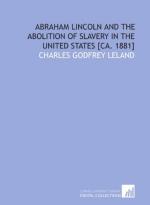|
This section contains 6,949 words (approx. 24 pages at 300 words per page) |

|
SOURCE: Haberly, David T. “Abolition in Brazil: Anti-Slavery and Anti-Slave.” Luso-Brazilian Review 9, no. 2 (December 1972): 30-46.
In the following essay, Haberly argues that the majority of nineteenth-century Brazilian abolitionist literature depicted black slaves as sexually immoral and prone to violence, stereotypes that reinforced the demand for emancipation based less on sympathy for the victims of slavery than the supposed dangers these slaves posed for their white slave-owners.
The abolition of African slavery is clearly one of the fundamental events of nineteenth-century Brazilian history. Its peaceful accomplishment—in sharp contrast to the bloody struggle in the United States—has traditionally been presented as evidence of the social and political flexibility of the Empire and the nation's abhorrence of violent confrontation. The virtual absence of pro-slavery publications before 1888, moreover, has been cited as proof of Brazil's fundamental and unique racial tolerance.
Some historians have been unwilling to buy this portrait of...
|
This section contains 6,949 words (approx. 24 pages at 300 words per page) |

|


